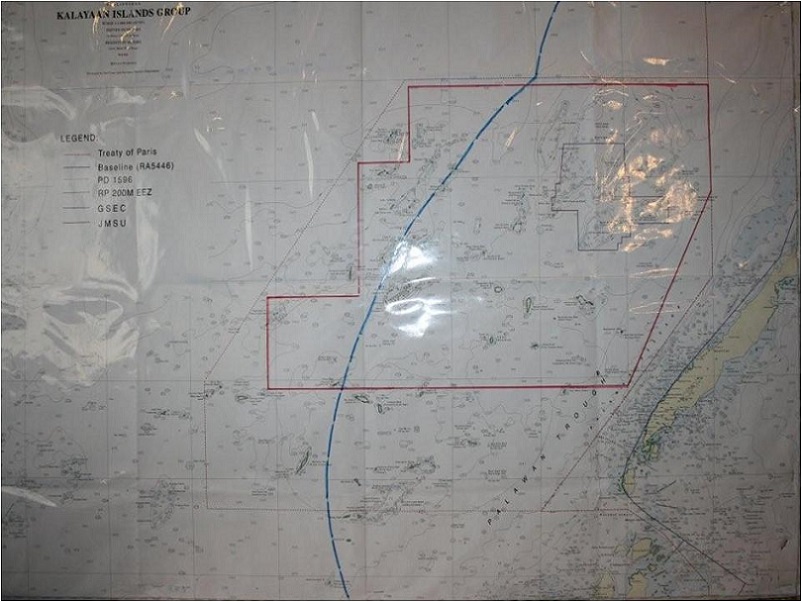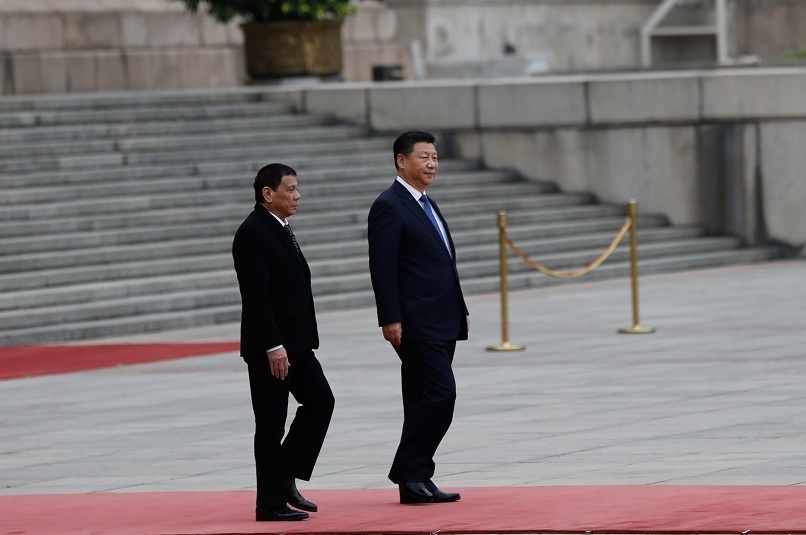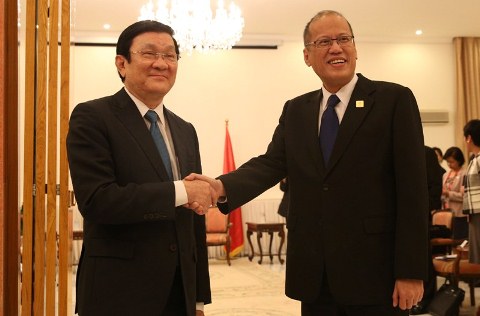A previous version of this video mistakenly interchanged the section and article numbers in the 1987 Constitution cited in the January 2023 decision of the Supreme Court. We re-uploaded this video to reflect the correction. We apologize for this error.
Foreign Affairs Undersecretary Carlos Sorreta wrongly stated that the Supreme Court (SC) upheld a “literal description” of the national territory in its decision to declare the Joint Marine Seismic Undertaking (JMSU) unconstitutional.
The JMSU is a 2005 exploration agreement among the Philippine National Oil Company (PNOC), Vietnam Oil and Gas Group (PETROVIETNAM), and China National Offshore Oil Corporation (CNOOC).
The deal covered 142,886 square kilometers of the South China Sea, most of which are part of the Philippines’ exclusive economic zone (EEZ).
STATEMENT
In a May 17 hearing by the Senate Committee on Government Corporations and Public Enterprises, Sorreta stressed the importance of joint development and resource sharing in international relations amid the “very difficult conflict” in the South China Sea.
He said the SC decision to nullify the JMSU has “far-reaching implications” because “rather than protecting, allowing our access to resources in disputed areas, we are excluded from cooperating with other countries to benefit from these resources.”
Sorreta went on to say:
“…it’s generally accepted that EEZ is not national territory but the Supreme Court has upheld the literal description of national territory in Article I of the Constitutionwhich ties our hands now to engage not only to be able to tap the resources together with others but has stopped us from the confidence building measure of building further cooperation.”
Source: Senate of the Philippines, Committee on Government Corporations and Public Enterprises, May 17, 2023, watch from 2:18:55 to 2:19:18
FACT
Sorreta is wrong on two accounts.
First, the SC did not rule that the Philippines’ EEZ is part of national territory in its January 2023 decision. Rather, it tackled whether or not the JMSU is “under the full control and supervision of the State” consistent with Section 2, Article XII of the 1987 Constitution.
In a May 29 1Sambayan TAPATAN Series, retired associate justice Antonio Carpio said the “national territory” clause is in Article I of the Constitution, while “the SC based its decision on the JMSU case on Section 2 of Article XII – these are two different articles in the Constitution.”
The High Court said:
“We cannot assume that the Agreement Area is included in the West Philippine Sea. We are only certain that based on the attached maps and the non-rebutted claim of petitioners, the Agreement Area is within the Philippines’ EEZ. Therefore, whatever natural resources found therein is owned by the Republic.”
Source: Supreme Court of the Philippines, G.R. No. 182734, p. 17
Carpio said there is a “whale of difference” between national territory and the EEZ. “A state has sovereignty over its national territory but only has sovereign rights over its EEZ,” he explained.
International law expert Romel Bagares said that within the EEZ “a state has exclusive rights to explore, exploit, conserve and manage natural resources, as well as build artificial islands, carry out environmental protection and conduct marine scientific research.”
Read UNCLOS explained, yet again and VERA FILES FACT SHEET: Six misconceptions about the Philippines’ arbitral award on the South China Sea
Second, the SC decision does not prevent the Philippines from inviting foreign companies, private or state-owned, to bid for service contracts in the EEZ in the WPS, Carpio said.
“The SC decision does not prevent the PH from entering into a cooperation agreement with China like the Memorandum of Understanding (MOU) entered into by the Duterte administration, because [C]hinese cooperation will be in accordance with the Service Contract system under Philippine law,” he explained.
Every service contract states that the Philippine government has full supervision and control in its implementation.
See The PH-China MOU on cooperation on oil and gas development, Energy crisis looms as PH drops joint oil and gas exploration with China, Just tiis na lang ba tayo sa dilim?
Carpio said Sorreta’s statement “will alarm other states because that would mean we have appropriated as sovereign territory maritime areas that under UNCLOS cannot be owned as sovereign territory by any coastal state.”




